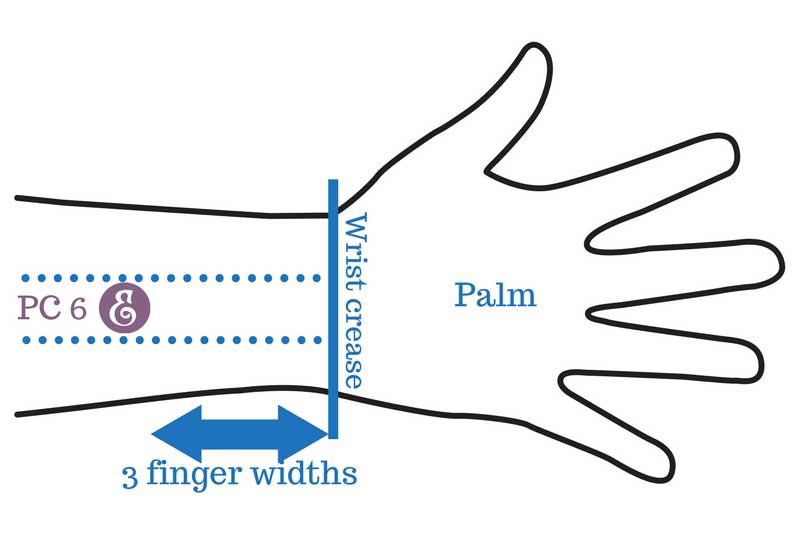01 Nov Natural Pregnancy Support November
Natural pregnancy support is a passion of mine so I couldn’t wait to have the opportunity to share this topic with all of you! Pregnancy is an exciting time in the life of a woman (and her partner/family) and the perfect opportunity to focus on health. Starting a family comes with many new experiences, life changes, countless questions, and some amount of uncertainty. Adding a naturopathic doctor to your healthcare team is an effective way to ensure you’re getting the support you need when uncertainty arises, as well as professional advice to help you optimize the health of you and your baby throughout preconception, pregnancy, postpartum, and beyond! Read on as I share with you some of my tips for enhancing the health of you and your baby, managing common pregnancy concerns, and preparing your body for the birth process.
Before we dive into the post, I want to say that this post is targeted towards optimizing a healthy pregnancy. There are a variety of potential medical diagnoses and health concerns that can arise in pregnancy, as well as those that can be pre-existing prior to pregnancy that can benefit from natural treatments. However, it would be a VERY long post if I tried to address all of them for you here! This blog post will give you a taste of the types of treatments that are available to you and then I encourage you to set up a consultation with me if you’re interested in learning more or diving deeper into natural support/treatment options that are safe and effective throughout pregnancy.
Enhancing the Health of You and Your Baby
This is an extensive topic and there are numerous factors that are so important throughout preconception and pregnancy to optimize the health of you and your baby! For this blog post, I want to focus on ways to enhance the long-term health of you and your baby beyond what you might already know from your medical doctor. When you have a prenatal appointment with me, we will absolutely discuss all the basics in terms of diet, lifestyle, exercise, prenatal vitamins, and more. On top of the basic recommendations, I recommend vitamin D, probiotics, and omega 3’s.
Vitamin D
Vitamin D is required in the body to maintain adequate levels of calcium and phosphorus. It is essential for proper bone development in your baby. We are also learning more and more every day about the importance of vitamin D for the immune system, skin health, mood, and more. In Canada, many of us are insufficient in our vitamin D levels due to the low amount of sunlight we are exposed to throughout most of the year. It is recommended that we take at least 1000IU of vitamin D daily throughout the winter months and this is true for pregnant women as well. I commonly recommend vitamin D testing because 1000IU of vitamin D daily isn’t enough to replete your stores if you’re deficient. Your baby gets their vitamin D from your stores and the vitamin D levels of infants are strongly correlated to maternal levels. It is also commonly recommended that exclusively breastfed infants be given an additional vitamin D supplement of 400IU daily (this is already added to most formulas for formula-fed infants). There are very few risks to vitamin D supplementation but it is always a good idea to check with your doctor before starting any new supplements.

Omega 3s
Omega 3 fatty acids are essential for brain health and development in the baby. We commonly aren’t getting enough in our diet so it is helpful to add a supplement throughout pregnancy. It is specifically DHA that is necessary for brain development in the baby, as well as preventing postpartum depression in the mother. EPA and DHA are the active anti-inflammatory components converted from omega-3 fatty acids and both should be included in your omega 3 supplement. I recommend taking at least 1 gram of combined EPA and DHA throughout pregnancy and postpartum. You can read my October Omegas blog post to learn more about omega 3’s.

Probiotics
Taking probiotics is helpful for the mother throughout pregnancy to support digestion and the immune system. If women have been working with me prior to their pregnancy, they are likely already taking a probiotic! If not, I recommend starting one and continuing it throughout pregnancy and postpartum. The benefit extends beyond helping the mother improve her current health. There are benefits to the baby in terms of atopy prevention. Preventing atopy means you are decreasing the likelihood of allergic diseases in your child, including food allergies, environmental allergies, asthma, and atopic dermatitis (eczema). This is especially important if you have a family history of these conditions.

Dr. Martin’s Pregnancy Tip #1: Practice mindfulness. If you don’t already have a regular meditation or mindfulness practice, I highly recommend starting one during pregnancy. It will help you naturally manage your stress levels and will also come in handy throughout the birth process. Check out my Mindfulness March post for some tips to start your mindfulness practice today.
Managing Common Pregnancy Concerns
Your body goes through a lot of normal physiological changes as your baby starts growing inside you. It is not surprising that these changes are associated with symptoms that might be new and uncomfortable for you. Each and every woman experiences slightly different symptoms throughout pregnancy, with varying degrees of severity. Since many of these symptoms are a normal part of pregnancy, the goal is usually for us to work together to ease them and make them more manageable for you.

Nausea and Vomiting of Pregnancy (AKA Morning Sickness)
The majority of women experience some amount of morning sickness within the first trimester of their pregnancy. This is related to the physiological and hormonal changes that occur during this time. It is most common to experience it from week 6 to week 14 but some women continue to experience it throughout their pregnancy. Beyond the typical lifestyle and dietary recommendations, such as eating small and frequent meals, avoiding smell and taste triggers, staying hydrated, and getting enough sleep, there are 3 specific natural therapies that are often quite effective for improving nausea.
- Vitamin B6. The exact mechanism is unknown but it appears to help with reducing nausea. It may help manage blood sugar, hormone levels, or correct a nutrient deficiency. Many women get pregnant immediately after being on the oral contraceptive pill and this can deplete vitamin B6 levels.
- Ginger. It is a safe and effective herb for preventing and reducing nausea. It can be taken as capsules, tea, or even ginger-flavoured hard candies can be helpful.
- Acupuncture. A targeted acupuncture treatment can be a great way to prevent and reduce nausea. It has the added benefit of being a relaxing treatment that can relieve stress, as well as address other symptoms you might be experiencing, such as headaches, insomnia, digestive upset, and more.
Dr. Martin’s Pregnancy Tip #2: To manage nausea at home, use acupressure. The acupuncture point PC 6 reduces nausea associated with pregnancy (it is also commonly used to reduce nausea associated with motion sickness!). It can be located 3 finger breadths below your wrist crease in the centre of your inner forearm in between two tendons. Hold pressure on this point when nausea arises.

Fatigue
As with morning sickness, the majority of women experience fatigue in the first trimester as the body adapts to physiological and hormonal changes. However, fatigue can be worsened by poor sleep, high stress, anxiety, depression, malnutrition, nutrient deficiencies (iron and vitamin B12 being most common), or thyroid concerns. Once we have ruled out these contributing factors, we can focus on simple ways to manage the normal pregnancy-related fatigue. Below I’ve listed a few of my favourite options.
- Magnesium. I will commonly recommend taking a magnesium supplement in the evening to help the body relax and ease anxiety, insomnia, and muscle cramping.
- B Complex. B vitamins are used in many processes in the body related to energy production, stress management, and hormone regulation. Prenatal vitamins commonly contain B vitamins so the combination of the prenatal vitamin plus an adequate dietary intake of B vitamins is sufficient for most women. However, some women with very low energy benefit from an additional B complex supplement.
- Exercise. It might be hard to feel like you have the energy to exercise but gentle exercises, such as walking and yoga, can significantly improve energy, mood, appetite, digestion, sleep, and many other aspects of health.

Dr. Martin’s Pregnancy Tip #3: Learn how to say no and prioritize your activities. It is so important to be able to listen to your body and rest when you’re feeling tired. This might be challenging for those of you who have full time jobs or full time mom duties but give yourself permission to rest when you can. This is my number one recommendation when it comes to pregnancy-related fatigue!

Digestive Concerns
Indigestion, heartburn, constipation, and other digestive concerns are common in pregnancy. The hormonal changes that occur in pregnancy lead to slower digestion. Also, the size of the baby puts upward pressure on the stomach. Understanding these changes and adjusting your eating habits to manage them more appropriately can be very beneficial. Most importantly (and this is advice that applies to everyone, not just pregnant women), the more relaxed you can be when eating, the more optimally your body can digest your food.
- Eating Habits. This is an important discussion with all of my patients but especially my pregnant patients who are suffering from digestive concerns. To optimize digestion, sit down and relax before, during, and after meals, chew your food fully, and monitor food intake to determine and avoid foods that aggravate your symptoms.
- Probiotics. They won’t solve the physiological pregnancy changes that have occurred in your digestive system but they will help improve the balance of your gut microbiome and ease bloating, constipation, diarrhea, and other underlying digestive concerns that might have been present prior to pregnancy.
- Fibre. Hemorrhoids are a common concern in pregnancy and they can be prevented by preventing constipation and diarrhea. Getting adequate fibre from high fibre vegetables, flax seeds, psyllium, and other dietary sources is key to digestive health.
- Magnesium. It is not only helpful for insomnia, anxiety, and leg cramping but the specific form of magnesium citrate can ease constipation.
Dr. Martin’s Pregnancy Tip #4: Don’t underestimate the effectiveness of natural therapies. Many women leave it as a last resort option but the best time to use natural therapies is for prevention! Here is a list of some of the common pregnancy concerns that can be addressed with natural therapies (sometimes in combination with conventional medical therapies):
- Infertility
- Recurrent miscarriages
- Gestational diabetes
- High blood pressure
- Urinary tract infections
- Colds and flus
- Headaches/Migraines
- Vaginal infections (including prevention of group B strep infections)
Preparing Your Body for the Birth of your Baby
I wrote a whole blog post titled Achieving Your Natural Birth over on the Healthy Moms Toronto blog. Check it out here.
I can support you in preparing for your birth (whether your goal is an unmedicated birth or not) in many ways! I will:
- Help you become educated in the birthing process so you can create a birth plan from a place of knowledge and understanding,
- Encourage you to stay physically active throughout your pregnancy, eat a nutritious diet, and keep your body as strong and healthy as possible.
- Discuss your fears and uncertainties around the birthing process and how to ensure you have the support you need.
- Prepare your body with acupuncture and herbal teas (raspberry leaf is an incredible option for preparing the uterus to create strong and effective contractions).
- Explain pain management techniques that can be used during labour, including acupressure, positioning, homeopathics, and botanical medicine.
Dr. Martin’s Pregnancy Tip #5: Work with a pelvic floor physiotherapist prior to your birth in order to prepare your pelvic floor muscles and learn the proper pushing techniques to protect those muscles from injury. Pelvic physiotherapists can also assist in identifying and healing diastasis recti (abdominal muscle separation), which can occur during pregnancy and lead to uncomfortable symptoms postpartum.

Dr. Martin’s Pregnancy Tip #6: Pre-birth acupuncture, starting around 36 weeks, helps the body soften the cervix, prepare the uterus for an effective birth, and encourage the baby into an optimal position. It can also be used starting around 40 weeks to assist in natural labour induction.
A Few of Dr. Martin’s Favourite Resources for Further Reading
- The Natural Pregnancy Book. By Aviva Jill Romm. (She also has an awesome blog post about Herbal Medicine Safety in Pregnancy)
- Guide To Childbirth. By Ina May Gaskin.
- The Birth Partner. By Penny Simkin.
- Guide to Breastfeeding. By Dr. Jack Newman.
- Sick Kids Mother Risk website. This is a great resource to help you determine the safety of various medications and products in pregnancy.
- OMama website. This is a great resource for a wide variety of evidence-based information to answer many of the common questions that arise throughout pregnancy.

